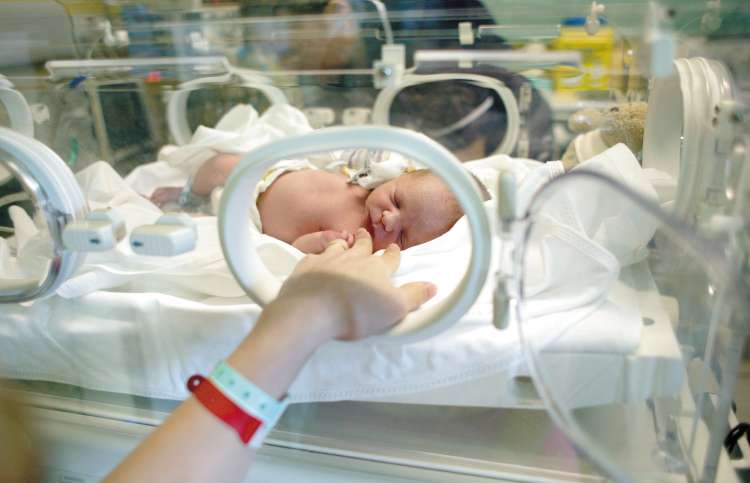NHS regulators to pool intelligence to spot maternity scandals faster
Two fifths of NHS maternity units need to improve their safety, the Care Quality Commission has said

Intelligence on complaints made about individual doctors and midwives is to be pooled with information about hospitals by three national regulators in an effort to spot maternity scandals sooner.
The Care Quality Commission is working with the General Medical Council and Nursing and Midwifery Council on a new database that all three organisations will be able to feed intelligence into which could flag problem services.
It comes amid growing concern over the decline in safety among maternity units across the NHS in recent years with the CQC downgrading a number of previously good hospital units amid concerns over staff shortages and poor culture. It said last year that almost two fifths of maternity units needed to improve on safety.
All three regulators told The Independent the idea for a joint database was in the early stages but it was being worked on to help improve the sharing of information and joint working.
Ted Baker, the CQC’s chief inspector of hospitals, said: “We want to improve our shared understanding of risk overall, and particularly in relation to maternity services. This means building agreement on common areas of risk to prioritise, and on how we identify, analyse, prioritise and address these shared risks together.
“We want to improve the way we collaborate and share data by enabling joint analysis and identification of common issues that cross organisational boundaries. We are currently involved in exploratory work to help us understand where the opportunities to triangulate our data are, and, longer term, how we can remove barriers to joint risk analysis and data sharing.”
Both GMC and NMC, which are responsible for regulating individual doctors and midwives, have said they want to do more to highlight systemic failures where they receive complaints about individual staff linked to the same hospital or unit.
In the past the bodies have been criticised for failing to recognise systemic failures in the NHS quickly enough.
The Care Quality Commission is responsible for regulating hospitals and can take action against NHS trusts where care is deemed to be unsafe. It can even prosecute hospitals where concerns are not acted on.
Charlie Massey, chief executive of the GMC said there were recurring themes in maternity failures including bullying of junior doctors which is higher than other specialities adding: “Culture and leadership are also frequent themes. This manifests itself in a lack of honesty, poor clinical governance, and poor teamwork between the different professions. And too often it leads to missed opportunities to learn, and a failure to spot problems at an early stage.”
“A critical issue is how we as regulators can use our data better to provide insight, intelligence and support. But we must do so in a way that feels more joined up from the perspective of a provider. Complex challenges require a more system-wide and co-ordinated approach, with more of a mentality to fix things before harm occurs.
“I’m excited by the work we are doing with the NMC and CQC to create a shared data platform. Our hope is that by pooling our data, we will be better able to spot issues earlier, and work with others to support providers in addressing those issues and challenges that we identify.”
Andrea Sutcliffe chief executive of the Nursing and Midwifery Council said: “As the professional regulator for nursing and midwifery professionals, we know when things go wrong in maternity services the impact can be devastating for women and their families.
“We know professional relationships within multidisciplinary teams have got to work well together for good care to thrive – and the same goes for all of us working together as health and care organisations as well. Looking at how we can better share our data and insight on risk and learning in maternity services is something we’re already proactively looking at with some of our fellow regulators.”
In recognition of the problems in maternity NHS England has invested almost £100 million in 2021 to boost staffing levels by 1,000 extra midwives and obstetricians and to provide dedicated safety training to maternity staff.
It follows recommendations from an independent inquiry into failures at the Shrewsbury and Telford Hospital Trust where almost 1,900 cases are being investigated.
Join our commenting forum
Join thought-provoking conversations, follow other Independent readers and see their replies
Comments


Bookmark popover
Removed from bookmarks